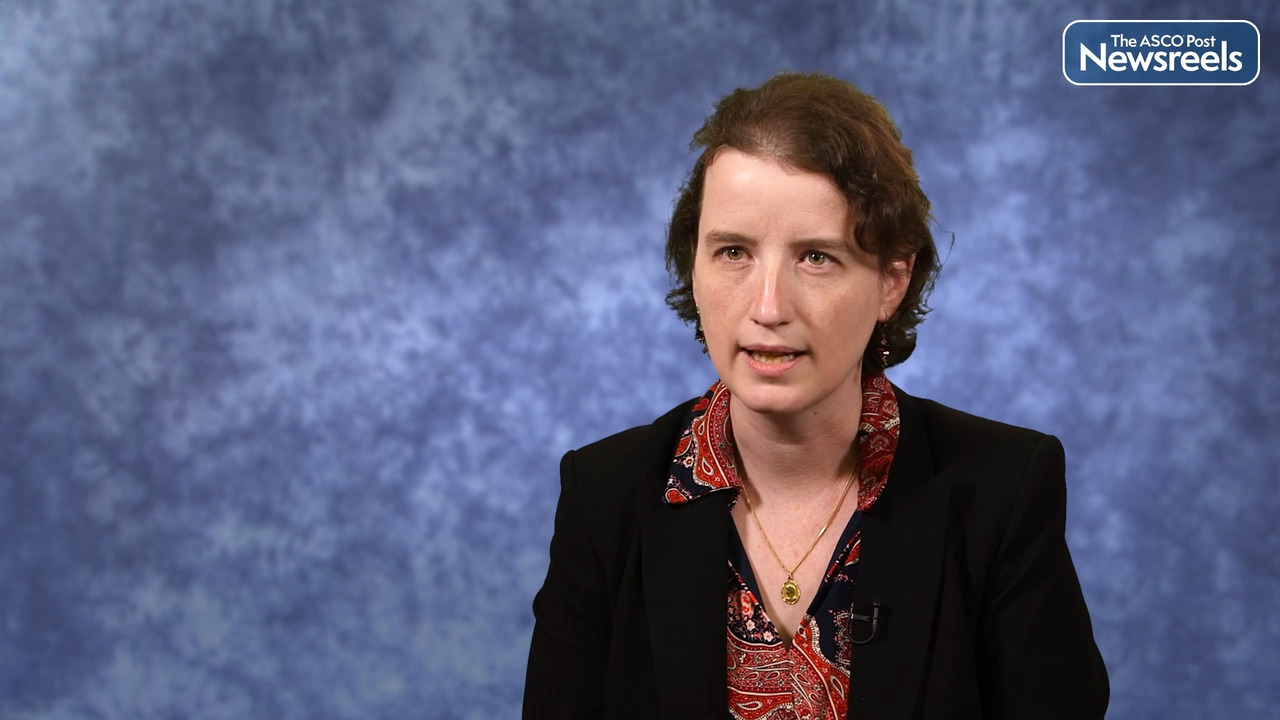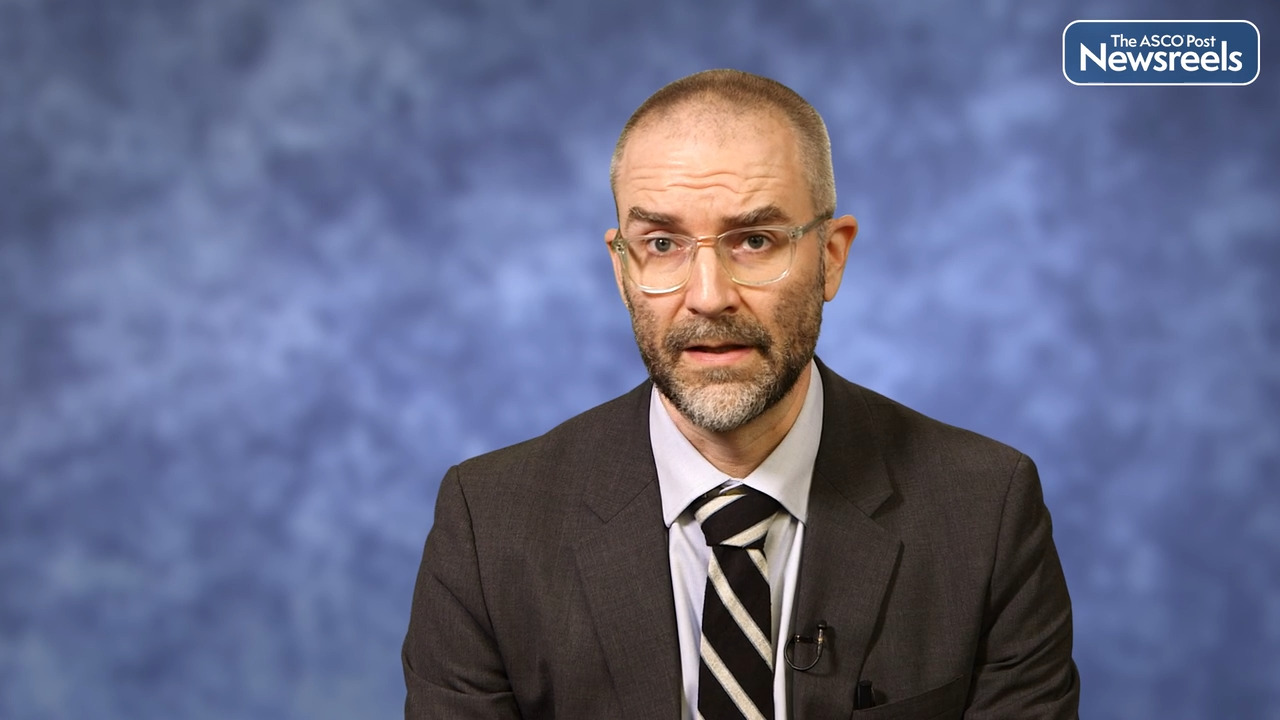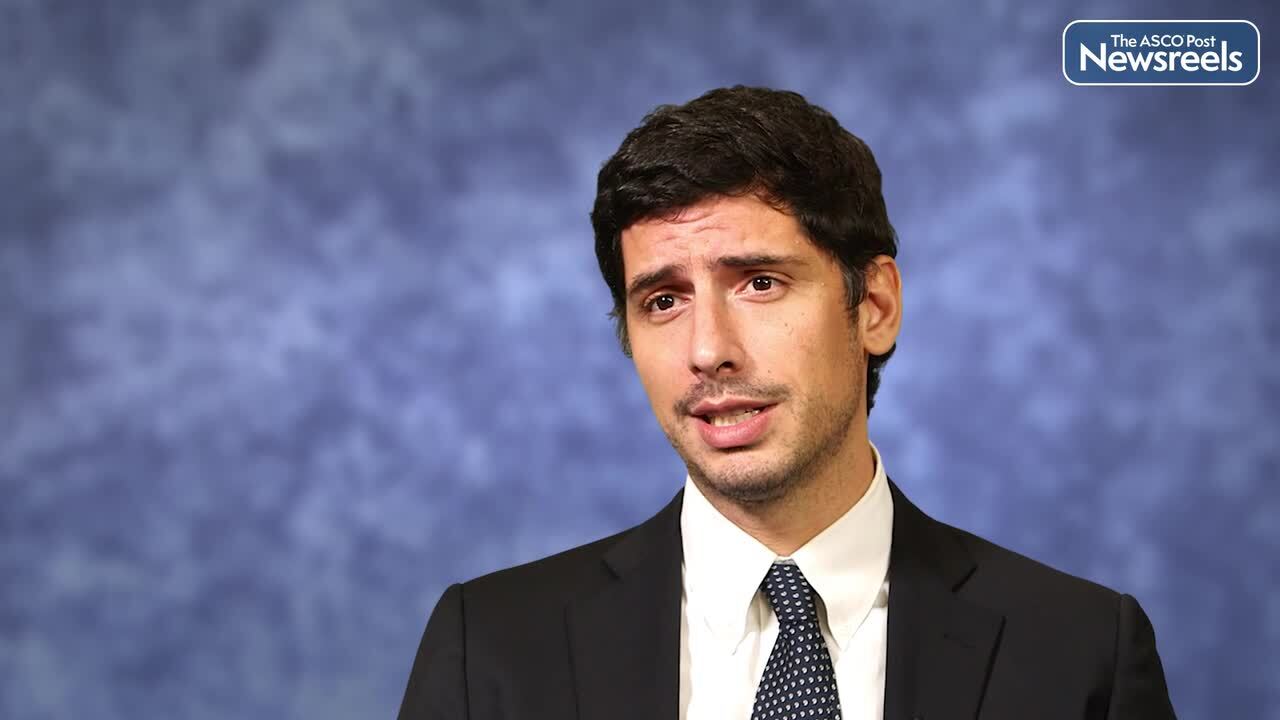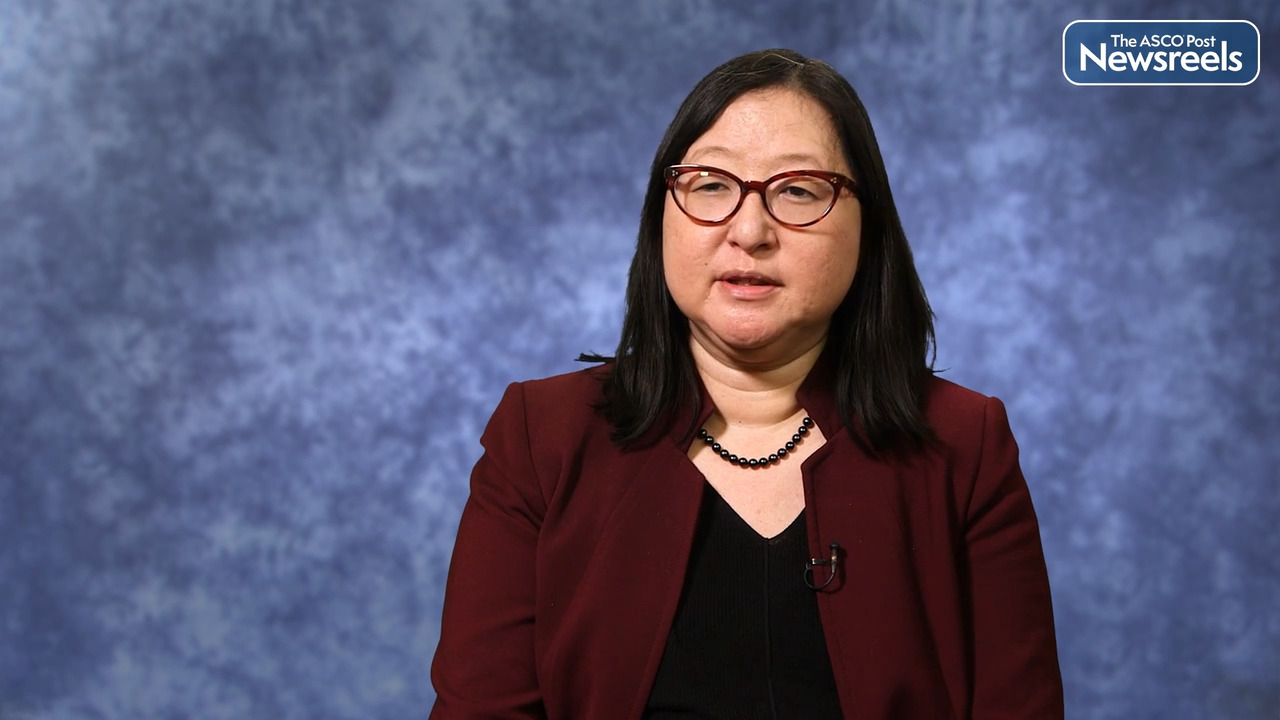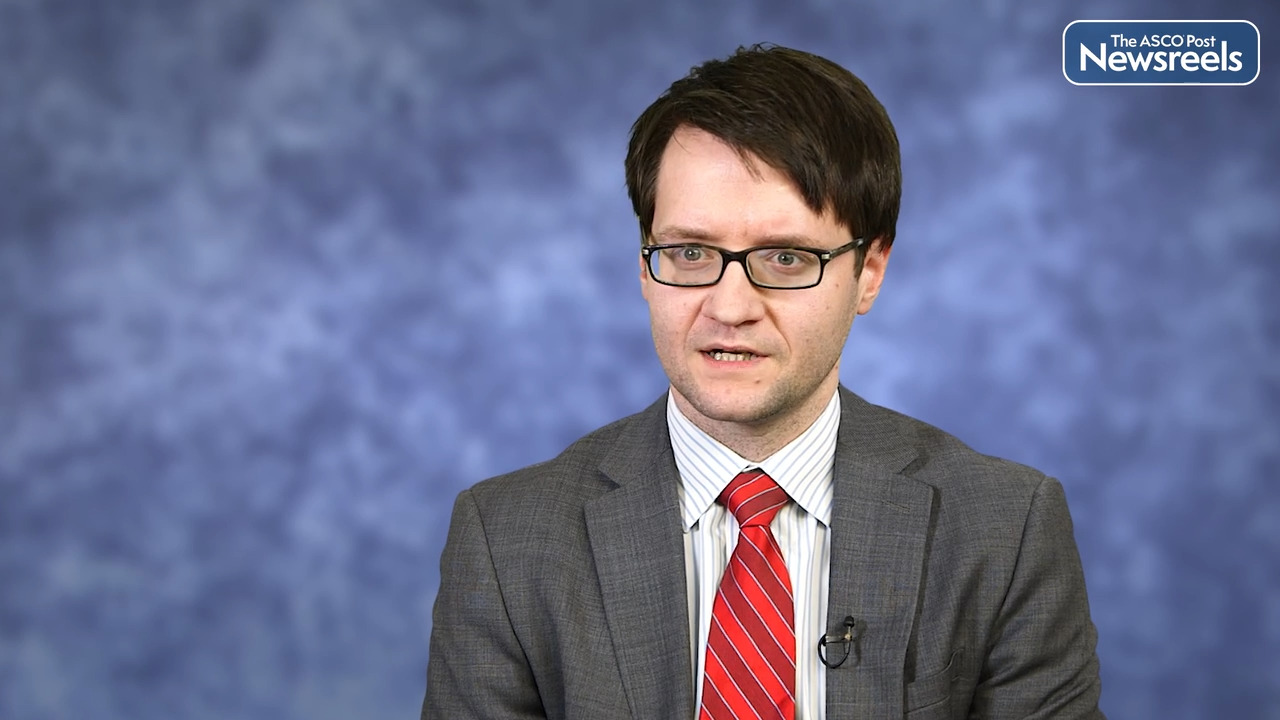Related Videos
Eileen M. Boyle, MD, PhD, on Multiple Myeloma: Sustained MRD Negativity in Newly Diagnosed Disease Treated with Immunotherapy Regimens
Eileen M. Boyle, MD, PhD, of the Perlmutter Cancer Center, NYU Langone Health, discusses Fc-mediated antibody effector function, inflammation resolution, and oligoclonality and their role in predicting sustained measurable residual disease negativity in patients with newly diagnosed multiple myeloma who were treated with immunotherapy regimens. For the first time, an analysis of T-cell receptors shows that oligoclonal profiles seen on treatment may influence the fitness of the immune response (Abstract 100).
Joseph Schroers-Martin, MD, on Posttransplant Lymphoproliferative Disorders: Tumor Microenvironment Determinants of Immunotherapy Response
Joseph Schroers-Martin, MD, of Stanford University, discusses immunogenomic features reflecting divergent biology in posttransplant lymphoproliferative disorders (PTLD). These include evidence of mismatch repair defects in Epstein-Barr virus–positive PTLD, tumor microenvironment depletion, and MYC pathway enrichment in certain patients (Abstract 72).
Francesco Maura, MD, on Genomic Determinants of Resistance in Newly Diagnosed Multiple Myeloma Treated With Targeted Immunotherapy
Francesco Maura, MD, of the University of Miami, Sylvester Comprehensive Cancer Center, discusses his team’s findings in which they defined a comprehensive catalogue of genomic determinants of response to DKRd (carfilzomib, lenalidomide, dexamethasone) in newly diagnosed multiple myeloma. The researchers have identified a number of new genomic alterations that explain resistance to the agents currently used in combination regimens (Abstract 470).
Eunice S. Wang, MD, on AML: Gemtuzumab Ozogamicin Plus Standard Induction Chemotherapy Improves Outcomes
Eunice S. Wang, MD, of Roswell Park Comprehensive Cancer Center, discusses the outcomes of patients newly diagnosed with acute myeloid leukemia (AML) who were treated with cytarabine plus daunorubicin plus gemtuzumab ozogamicin (GO). These patients experienced higher rates of measurable residual disease–negative complete remission and complete remission with incomplete count recovery, compared to those treated with cytarabine plus idarubicin daunorubicin alone. Although adding GO was not associated with improved overall survival, longer follow-up is warranted to determine an absolute survival advantage of this regimen (Abstract 58).
Andrew Matthews, MD, on AML: Real-World Effectiveness of 7 + 3 Intensive Chemotherapy vs Venetoclax and a Hypomethylating Agent
Andrew Matthews, MD, of the Abramson Cancer Center, University of Pennsylvania, discusses findings from a large, multicenter study that showed superior outcomes with 7 + 3 chemotherapy (cytarabine continuously for 7 days, along with short infusions of an anthracycline on each of the first 3 days) vs venetoclax in patients with acute myeloid leukemia (AML). In this real-world data set, the 7 + 3 cohort outperformed historical benchmarks in overall survival and early mortality, perhaps reflecting improved later lines of therapy and patient selection. Prospective studies (such as NCT04801797) must confirm the superiority of intensive chemotherapy (Abstract 426).
